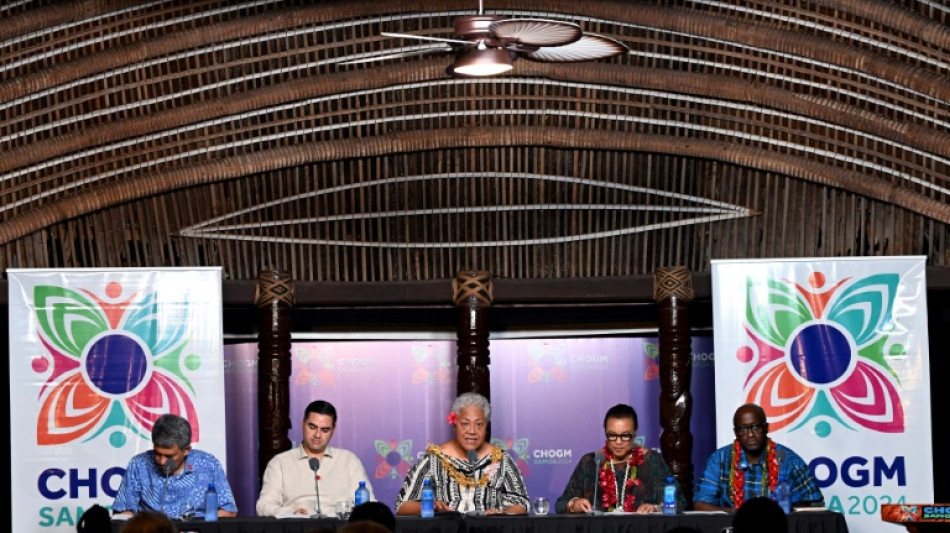
-
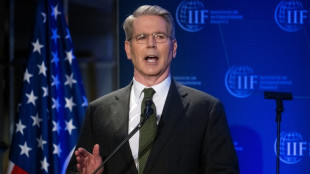 Empty shelves? US Treasury secretary not concerned 'at present'
Empty shelves? US Treasury secretary not concerned 'at present'
-
Slot told Liverpool they could win the league at season start: Konate
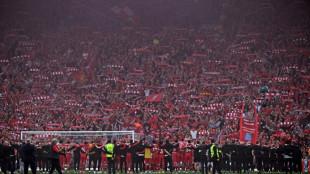
-
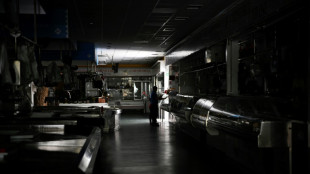 Spain brought to a halt by huge blackout
Spain brought to a halt by huge blackout
-
Stock markets mostly higher amid trade talk hopes

-
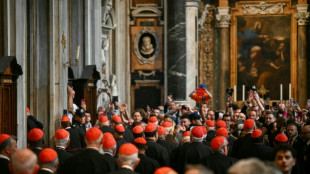 Conclave starts May 7, with cardinals saying new pope must tackle abuse
Conclave starts May 7, with cardinals saying new pope must tackle abuse
-
Massive blackout hits Spain and Portugal
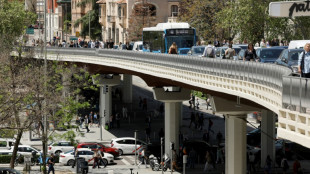
-
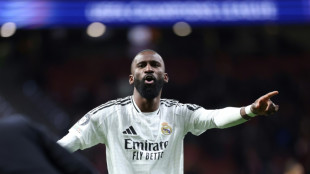 Ruediger 'must show respect to others' says Germany boss Voeller
Ruediger 'must show respect to others' says Germany boss Voeller
-
As Canada votes, Trump pushes US takeover plan
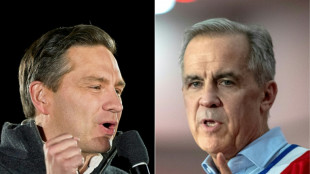
-
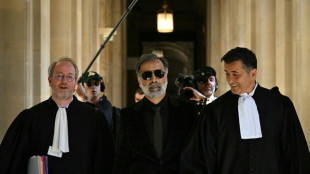 Ten on trial in Paris over 2016 gunpoint robbery of Kim Kardashian
Ten on trial in Paris over 2016 gunpoint robbery of Kim Kardashian
-
African players in Europe: Salah scores, takes selfies as Reds seal title

-
 Bangladesh spinner Taijul's 5 wickets trigger Zimbabwe collapse in 2nd Test
Bangladesh spinner Taijul's 5 wickets trigger Zimbabwe collapse in 2nd Test
-
French mosque murder suspect, 21, surrenders in Italy

-
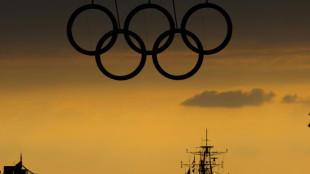 Mayor Khan keen for London to make Olympics history
Mayor Khan keen for London to make Olympics history
-
Iranian president visits Azerbaijan as ties warm
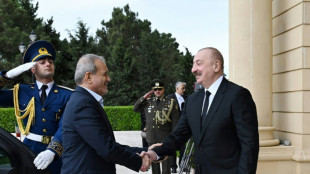
-
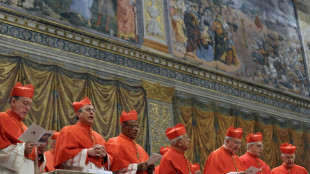 What we know ahead of the conclave
What we know ahead of the conclave
-
Jannik Sinner launches foundation supporting children

-
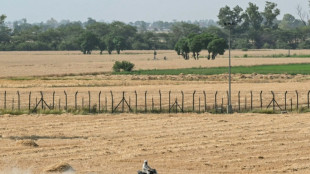 Villagers on India's border with Pakistan fear war
Villagers on India's border with Pakistan fear war
-
Putin announces surprise Ukraine truce for May 8-10
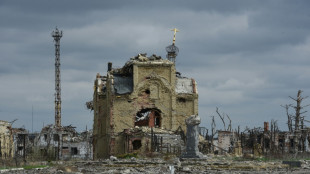
-
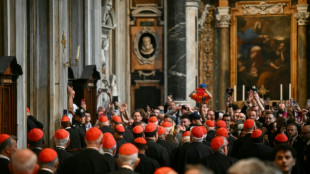 Conclave to elect new pope starts May 7
Conclave to elect new pope starts May 7
-
Stock markets mostly rise amid trade talk hopes

-
 India says signs deal with France for 26 Rafale fighter jets
India says signs deal with France for 26 Rafale fighter jets
-
Trump's deep-sea mining order violates global norms: France
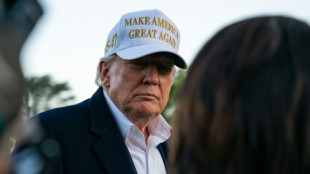
-
 India Kashmir crackdown sparks anger as Pakistan tensions escalate
India Kashmir crackdown sparks anger as Pakistan tensions escalate
-
Russia says claims over annexed Ukraine regions key to peace
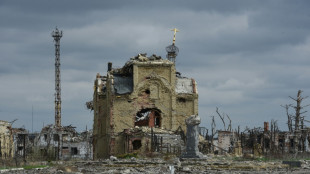
-
 Austrian climber dies on Nepal mountain
Austrian climber dies on Nepal mountain
-
Fires rage 2 days after Iran port blast killed 46

-
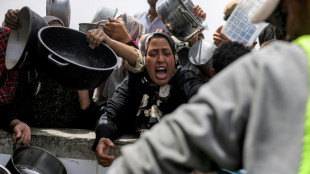 Palestinian official tells ICJ Israel using aid blockage as 'weapon of war'
Palestinian official tells ICJ Israel using aid blockage as 'weapon of war'
-
France arrests 25 in police raids after prison attacks
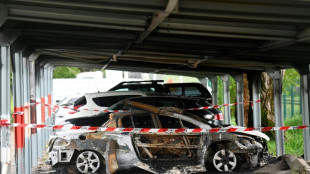
-
 Kim Kardashian's next star turn is in a Paris courtroom
Kim Kardashian's next star turn is in a Paris courtroom
-
Syria group says military chief arrested in UAE

-
 Anger in Indian Kashmir at demolitions and detentions
Anger in Indian Kashmir at demolitions and detentions
-
Italy bank merger wave heats up as Mediobanca eyes Banca Generali
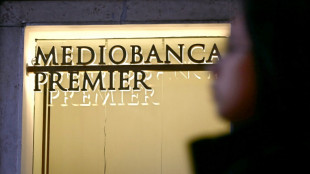
-
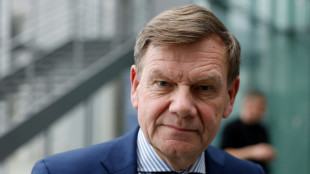 Putin critic Johann Wadephul, Germany's incoming foreign minister
Putin critic Johann Wadephul, Germany's incoming foreign minister
-
Cardinals expected to pick conclave date to elect new pope
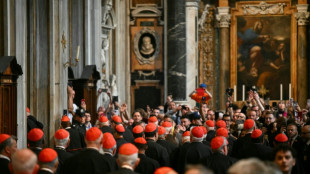
-
 French mosque murder suspect arrested in Italy
French mosque murder suspect arrested in Italy
-
China says on 'right side of history' in trade standoff with US

-
 Stock markets mostly rise as investors eye trade talks
Stock markets mostly rise as investors eye trade talks
-
Fires rage 2 days after Iran port blast killed 40
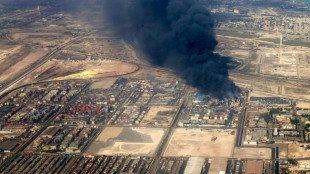
-
 Yemen's Huthi rebel media says 68 killed in US strikes on migrant centre
Yemen's Huthi rebel media says 68 killed in US strikes on migrant centre
-
Man rescued from Mount Fuji twice in one week: reports
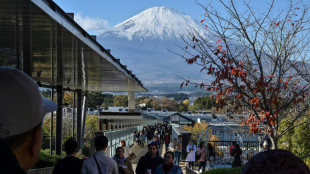
-
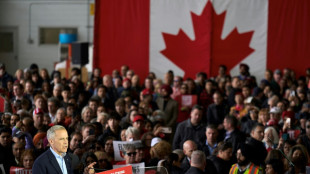 Canada votes for new government to take on Trump
Canada votes for new government to take on Trump
-
Top UN court to open hearings on Israel's aid obligation to Palestinians
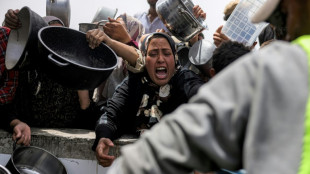
-
 Philippines denies 'irresponsible' Chinese report on disputed reef
Philippines denies 'irresponsible' Chinese report on disputed reef
-
T'Wolves win to push Lakers to brink, Celtics, Knicks and Pacers win

-
 Myanmar marks month of misery since historic quake
Myanmar marks month of misery since historic quake
-
South Korea's SK Telecom begins SIM card replacement after data breach

-
 Women's flag football explodes in US as 2028 Olympics beckon
Women's flag football explodes in US as 2028 Olympics beckon
-
'Hunger breaks everything': desperate Gazans scramble for food
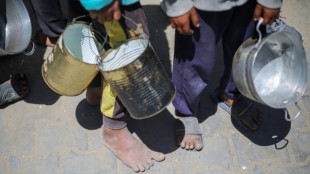
-
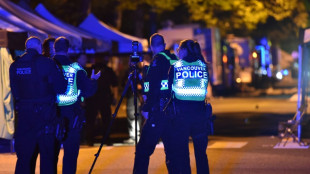 Suspect charged with murder in Canada car attack that killed 11
Suspect charged with murder in Canada car attack that killed 11
-
Lost to history: Myanmar heritage falls victim to quake


UK treads fine line on slavery legacy, while ruling out reparations
Commonwealth countries want talks on slavery reparations but the United Kingdom -- engaged in soul-searching over its former empire for several years now -- is not open to financial compensation, officials and analysts say.
"I think segments of British society might be ready to talk about reparation but you have other sectors, the majority really, that strongly oppose it," Sascha Auerbach, director of the Institute for the Study of Slavery at Nottingham University, told AFP.
Meeting last week at a summit in Samoa, the Commonwealth's 56 members said the "time has come" for talks about the legacy of the transatlantic slave trade, in a landmark declaration that raised the prospect of future reparations.
African, Caribbean and Pacific nations want Britain -- and other colonial powers -- to apologise for slavery and other ills of colonisation, and to start talks about compensation.
Labour Prime Minister Keir Starmer, a former human rights lawyer, has rejected both requests, arguing that he wants to "look forward" rather than have "very long endless discussions about reparations" involving the past.
"I think he is concerned that the country is not ready to have this conversation," said Alan Lester, a historian at the University of Sussex, noting that any talk of restorative justice a few months after far-right riots rocked England is seen as politically risky.
The issue is divisive. Figures in centre-left Labour -- which came to power in July -- have long been open to the debate, but the Conservatives reject it outright.
Robert Jenrick, one of the candidates to be the new Tory leader, has said that criticising the British Empire is anti-patriotic.
He wrote recently that "the territories colonised by our empire were not advanced democracies".
"Many had been cruel, slave-trading powers. Some had never been independent. The British empire broke the long chain of violent tyranny as we came to introduce -- gradually and imperfectly -- Christian values," he added.
While Britain has expressed remorse for slavery in broad terms, London has baulked at the idea of paying financial reparations, which would likely come with a hefty price tag.
A 2023 report co-authored by a United Nations judge, Patrick Robinson, concluded that the UK likely owed more than £18 trillion (or 21 trillion euros) for its involvement in slavery in 14 countries.
This figure took into account the unpaid wages of slaves, trauma caused, and damages owed to their descendants.
So far, the Commonwealth countries have not put forward any figures of their own.
"It's very unlikely that countries would ask for that figure," Lester, the historian, told AFP.
Auerbach suspects that money is not the countries' "main goal".
"What they want is recognition and accountability," he said.
Opponents in Britain point out that a public apology could open the doors to legal action against the country. Auerbach notes that the Netherlands' government and king apologised last year for slavery and has not yet been sued.
For its part, the British royal family has so far stopped short of apologising.
King Charles III did, however, on a visit to Kenya last year, express his "greatest sorrow and deepest regret" over the "abhorrent and unjustifiable acts of violence committed against Kenyans" during colonial rule.
"It's a delicate subject. I would say that the monarchy has navigated this debate very skillfully," Professor Pauline Maclaran at Royal Holloway, University of London, told AFP.
Other British institutions have issued apologies or owned up to mistakes, including the Church of England which officially said sorry in 2020.
The National Trust, which protects heritage sites, published a report the same year detailing links between dozens of properties it runs and the slave trade.
Earlier this year, the esteemed Royal Academy of Arts held an exhibition about how British art was implicated by slavery -- a first in its more than two centuries of existence.
"At least we're having the conversation in the Anglo-Saxon world, which is not the case in Spain or France," said Auerbach.
P.Santos--AMWN


